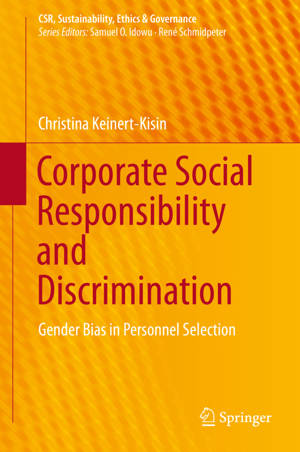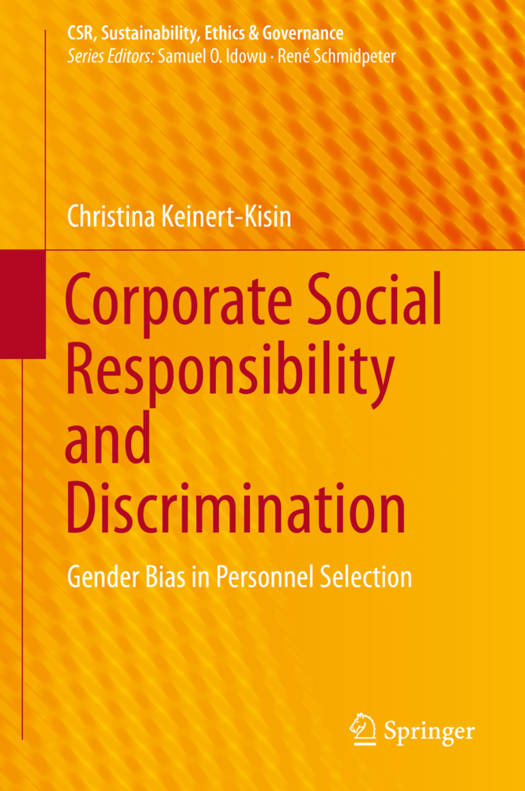
- Afhalen na 1 uur in een winkel met voorraad
- Gratis thuislevering in België vanaf € 30
- Ruim aanbod met 7 miljoen producten
- Afhalen na 1 uur in een winkel met voorraad
- Gratis thuislevering in België vanaf € 30
- Ruim aanbod met 7 miljoen producten
Zoeken
Corporate Social Responsibility and Discrimination
Gender Bias in Personnel Selection
Christina Keinert-Kisin
€ 105,45
+ 210 punten
Uitvoering
Omschrijving
This
book presents and deconstructs the existing explanations for the differential
career development of qualified men and women. It reframes the problem of
discrimination in the workplace as a matter of organizational ethics, social
responsibility and compliance with existing equal opportunity laws. Sensitive
points are identified where social biases, decision-makers' individual economic
interests and shortcomings of organizational incentive policies may lead to
discrimination against qualified women. The ideas put forward are empirically
tested in an original laboratory experiment that examines personnel selection
in the male-dominated field of science and technology. It contrasts the
selection of applicants with gendered and gender-blind applications available
to subjects under controlled conditions. 30% of participants were high-level
decision-makers, which is unprecedented in this field of research. The results,
highly relevant for organizational practice, are explained and discussed in
detail.
book presents and deconstructs the existing explanations for the differential
career development of qualified men and women. It reframes the problem of
discrimination in the workplace as a matter of organizational ethics, social
responsibility and compliance with existing equal opportunity laws. Sensitive
points are identified where social biases, decision-makers' individual economic
interests and shortcomings of organizational incentive policies may lead to
discrimination against qualified women. The ideas put forward are empirically
tested in an original laboratory experiment that examines personnel selection
in the male-dominated field of science and technology. It contrasts the
selection of applicants with gendered and gender-blind applications available
to subjects under controlled conditions. 30% of participants were high-level
decision-makers, which is unprecedented in this field of research. The results,
highly relevant for organizational practice, are explained and discussed in
detail.
Specificaties
Betrokkenen
- Auteur(s):
- Uitgeverij:
Inhoud
- Aantal bladzijden:
- 242
- Taal:
- Engels
- Reeks:
Eigenschappen
- Productcode (EAN):
- 9783319291567
- Verschijningsdatum:
- 10/05/2016
- Uitvoering:
- Hardcover
- Formaat:
- Genaaid
- Afmetingen:
- 156 mm x 234 mm
- Gewicht:
- 535 g

Alleen bij Standaard Boekhandel
+ 210 punten op je klantenkaart van Standaard Boekhandel
Beoordelingen
We publiceren alleen reviews die voldoen aan de voorwaarden voor reviews. Bekijk onze voorwaarden voor reviews.











